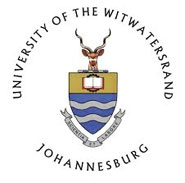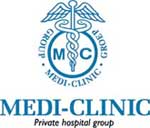The University of the Witwatersrand's (Wits) Donald Gordon Medical Centre, SA's only privately owned teaching hospital, says inadequate funding has hindered the growth of its training programme.
Since the programme was launched in 2006, the centre hasn't been able to fill all its training desks. It's accredited to train as many as 51 specialist doctors, but at present has just 24 trainees - six specialists and 18 sub-specialists.
By the end of this year it will have produced only 35 specialists since 2006.
SA has a dire shortage of specialist doctors - five per 10,000 people - and most are in the private sector. As a result, their services cost a fortune. Last year they accounted for 23% of the R103bn that medical schemes paid for health-care expenditure - and that's just in the private sector.
The country's eight public medical schools have limited capacity and their focus has been to increase the number of general practitioners, who are also scarce.
Partnership
The Wits Donald Gordon Medical Centre is a partnership between Wits and Mediclinic. Wits set it up to counter the capacity constraints in the eight public medical schools and to try and retain specialists who were leaving government hospitals for the more lucrative private sector. Doctors in the training programme also put in time at other academic hospitals such as Chris Hani Baragwanath and Charlotte Maxeke.
The Donald Gordon Foundation provided Wits with funding for the purchase in 2002 of the Kenridge Hospital in Parktown, Johannesburg as a private training platform. In 2005 Mediclinic was brought in to manage the facility and bought 49% of it. The facility was later renamed the Wits Donald Gordon Medical Centre.
Wits ploughs all the profit it makes from the hospital back into the training programme; Mediclinic gives back 25% of its profit. Several other donors have supported the programme over the years, but the money hasn't been enough to scale it up. The centre's management says it may have to reduce the intake next year.
Funding needed
"If we don't get more corporate sponsors, we're going to have to cut the number of trainees. We can train only as many as we have funders for," says chief executive Sue Tager.
It costs R3,1m to train a specialist in four years and R2m to train a sub-specialist in two years.
The institution offers training in disciplines such as nephrology, oncology, hepatology, transplant surgery and surgical gastroenterology.
The programme was something of an experiment for a collaboration between government and private health-care providers in the country's efforts to increase the number of health-care professionals, and was modelled on programmes in the US.
Government had resisted calls for the accreditation of private institutions to train doctors. But the Wits Donald Gordon programme's slow pace in producing specialists shows it's yet to find its feet as a training institution.
Tager says the project hasn't been easy. The institution had to look for doctors in the private sector who would agree to teach as well as practise on the premises.
Shortage of specialists
Sharon Fonn, acting dean of the faculty of health sciences at Wits, says: "The training of health-care professionals is not an ad hoc by-product of seeing patients. Rather, it requires investment in dispassionate and quality-controlled teaching and assessment."
Ayanda Ntsaluba, former director-general of the department of health and now executive director at Discovery, says partnerships such as the Wits Donald Gordon programme should be supported. As director-general, though, he was sceptical about it when it was pitched.
Government's objective is not only to grow the numbers, but also to open space for black students to study medicine. It's feared that privately owned medical schools would negate the transformation agenda of the country as they would most likely enrol students who could afford the fees, most of whom wouldn't be black.
Another fear is that they would drain the academic body of the existing public medical schools. Ntsaluba, who also leads a private-sector initiative to help tackle the skills shortage in health, says university-led partnerships would ensure standards were retained.
"I personally think we should not open a medical school in the private sector. But we can accredit universities to work with private hospitals," says Ntsaluba.
He says universities could enter into arrangements with private facilities to rotate their post-graduate students to expose them to the latest technologies. Specialists could in turn be given associate professorships linked to universities to train the students.
Ntsaluba says the private sector should also be seen as a national resource that can be used to build the human-resources capacity the country needs. "When we were bidding for the 2010 soccer World Cup we didn't parade only assets that we had in the public sector. Sepp Blatter [president of football federation Fifa] came here and inspected Netcare's facilities," he said.
Source: Financial Mail via I-Net Bridge

























































